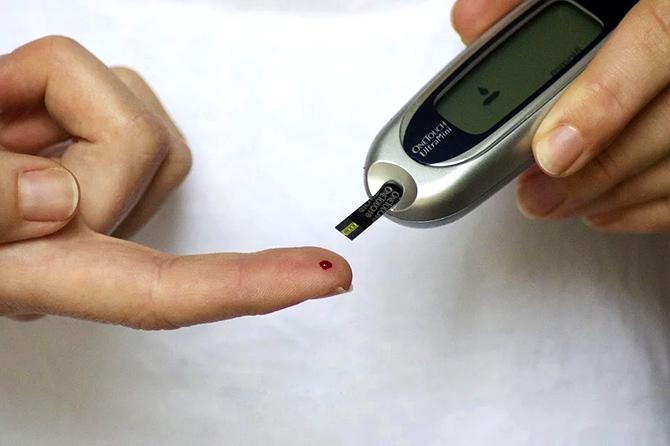 | « Back to article | Print this article |

There is a lot of anxiety and doubts among people about COVID-19.
In people with pre-existing health conditions like diabetes, the risk of contracting it increases by as much as 50%.
Hence, it is extremely important for those with diabetes to keep their blood sugar levels under control.
Apart from regularly monitoring vitals, it is important to undertake the following precautions.
1. Don't miss your medication
Despite all the chaos and disruptions, it is absolutely must to continue medication as per the prescribed routine.
You might not be able to visit the doctor or hospital for regular checkups. However, you can consult them telephonically or via telemedicine services.
Opt for home delivery of medicines if needed, but make sure that you don’t miss it.
2. Monitor your sugar levels
Not being able to visit a diagnostic lab or getting the regular blood sugar testing done is another challenge in the current scenario.
Going to a high-risk zone such as a hospital or lab for a routine test is not advisable, but you can always self-monitor blood glucose levels.
There are also home healthcare providers who offer doorstep services to monitor people with diabetes.
3. Nutrition
Restricted or infrequent food supplies and the disruptions caused by the pandemic might make some people compromise on their dietary habits and lose sight of the nutrition practices they followed in the pre-pandemic days.
However, this can be highly risky and one should focus on nutrition and ensuring adequate consumption of protein.
Drink a lot of water instead of aerated beverages or fruit juices. Consumption of fats and carbohydrates must be kept in check.
Oily foods as well as fast foods or consumption of food items that might be difficult to digest should be avoided.
Consuming a balanced diet with the right quantities of fruits, vegetables and nutrients can be a great way to control your blood glucose levels.
4. Exercise
Physical activity is integral to managing diabetes at home.
Even when it is not possible to exercise outdoors due to the pandemic fears and social distancing, one can always choose from the available alternatives.
Walking and exercising indoors, breathing exercises and yoga can be done at home.
The intensity and selection of exercises chosen should be in accordance with the individual’s age and medical conditions.
Caution should be exercised by the elderly or patients with heart diseases.
Exercise has several benefits such as reducing fatigue, making you feel happier, improving sleep quality, preventing weight gain etc.
5. Foot care
In people with diabetes, it is very important to regularly inspect the feet, wearing the right footwear and avoid injuries.
At times there can be problems such as peripheral vascular disease (PVD) and peripheral neuropathy (PN).
To prevent such things, daily foot cleaning should be undertaken with lukewarm water and soap that is not harsh on the skin.
Applying petroleum jelly and cutting nails are some of the other measures that should be followed.
6. Manage stress
Stress is a major cause of diabetes. The patients should not hesitate in communicating their psychological fears and problems with the doctors whenever needed.
There is a need for families to understand that there is a lot of fake news and stress causing factors doing the rounds these days and people with diabetes should be protected as well as supported in a way that their stress levels remain low.
It is ideal that they do not focus too much on reading, talking or watching news related to the pandemic.
7. Addiction
Smoking, drinking, betel chewing or any other form of addictive habits should be strongly avoided.
Nicotine can make insulin ineffective and the people with diabetes who smoke or drink are at a significant risk of heart and kidney ailments as well as infections such as the COVID-19.
8. Social distancing and monitoring health condition
People with diabetes should follow social distancing protocols without any compromise and wear masks whenever they are outdoors.
It is also important to understand and watch out for various diabetes related complications as well as other diseases or the pandemic infection.
Signs such as blurred vision, dizziness, unusual hunger, nausea, dry mouth, shooting pains and loss of taste etc should be taken very seriously.
Skipping meals or hygiene routines is to be completely avoided.
If any symptoms or discomforts are experienced then the caregivers should be contacted telephonically and guidance, support should be sought.
Diabetes indeed poses a greater risk of the pandemic infection. However, by adhering to the above-mentioned suggestions and meticulously taking care of personal wellness and hygiene, one can avoid COVID-19 and other infections.
Dr Vishal Sehgal is medical director, Portea Medical.